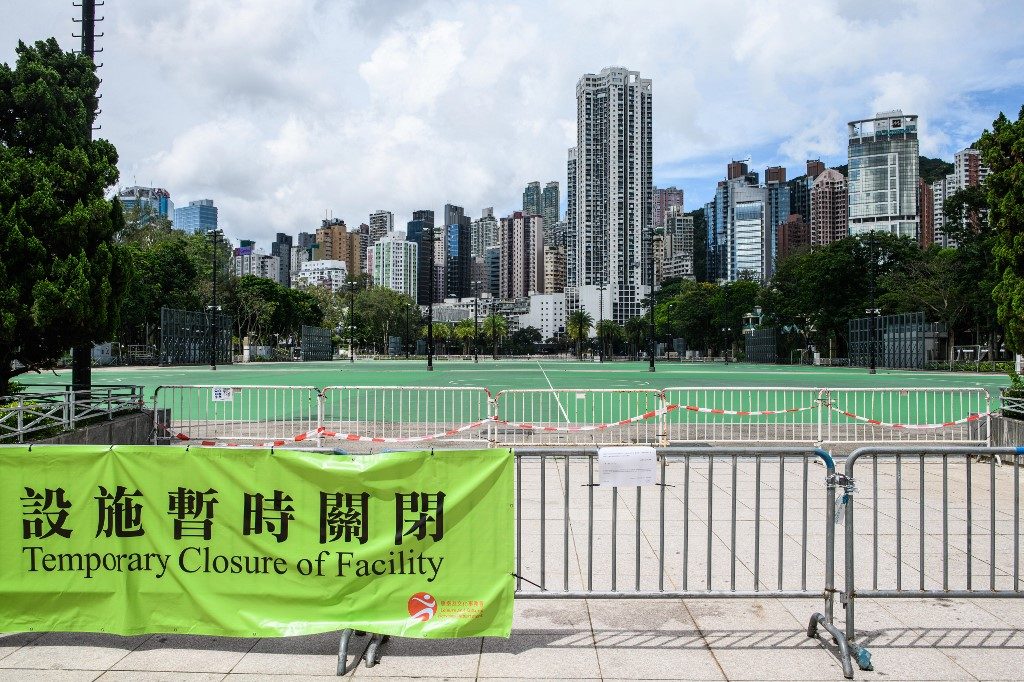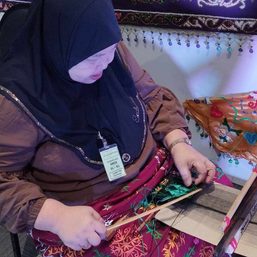SUMMARY
This is AI generated summarization, which may have errors. For context, always refer to the full article.

HONG KONG (UPDATED) – Hong Kong marked China’s deadly Tiananmen crackdown on Thursday, June 4, with candle-light ceremonies planned across the city after authorities banned a mass vigil at a time of seething anger over a planned new security law.
Open discussion of the brutal suppression is forbidden in mainland China, where hundreds – by some estimates more than a thousand – died when the Communist Party sent tanks on June 4, 1989 to crush a student-led demonstration in Beijing calling for democratic reforms.
But the people of semi-autonomous Hong Kong have kept memories alive for the past 3 decades by holding a huge annual vigil, the only part of China where such mass displays of remembrance are possible.
This year’s service was banned on public health grounds because of the coronavirus pandemic with barricades surrounding Victoria Park, the traditional ceremony venue, and police patrolling nearby.
But organizers have called for residents to instead light candles of remembrance at 8 pm (1200 GMT) wherever they are.
“I don’t believe it’s because of the pandemic. I think it’s political suppression,” a 53-year-old man surnamed Wong, told Agence France-Presse (AFP) after kneeling by the park barricades to pay respects to the dead.
“I do worry that we may lose this vigil forever.”
Crowds have swelled at Hong Kong’s Tiananmen vigils whenever fears have spiked that Beijing is prematurely stamping out the city’s own cherished freedoms, an issue that has dominated the finance hub for the past 12 months. (READ: Outrage in Hong Kong as China pushes security law)
Security and anthem laws
The city was engulfed by 7 straight months of huge and often violent pro-democracy protests last year – rallies that kicked off 5 days after the last annual vigil. (READ: China media seize on video of Hong Kong protesters beating lawyer)
In response to those demonstrations last month Beijing announced plans to impose the security law, which would cover secession, subversion of state power, terrorism and foreign interference.
China says the law – which will bypass Hong Kong’s legislature – is needed to tackle “terrorism” and “separatism” in a restless city it now regards as a direct national security threat.
Opponents, including many Western nations, fear it will bring mainland-style political oppression to a business hub supposedly guaranteed freedoms and autonomy for 50 years after the 1997 handover from Britain.
Conglomerates with mainland business interests have issued statements supporting the bill including HSBC, Standard Chartered and Jardine Matheson.
But an American Chamber of Commerce survey this week said 83% of Hong Kong members were either very or moderately concerned about the law, while half were pessimistic about the city’s long term future.
Further inflaming tensions, Beijing wants another law that would punish insults towards China’s national anthem with up to 3 years in jail.
Hong Kong’s lawmakers are expected to vote on the anthem bill on Thursday afternoon but the debate was halted when an opposition lawmaker was ejected for throwing stagnant water on the floor in a Tiananmen protest.
Blackout on mainland
With the Victoria Park vigil banned, Hong Kongers are organising locally and getting creative, chiefly with the scattered candle-light ceremonies.
Seven Catholic churches have also announced plans to host a commemorative mass on Thursday evening.
But in mainland China, the crackdown is greeted by an information blackout, with censors scrubbing mentions of protests and dissidents often visited by police ahead of June 4.
Police in Beijing prevented an AFP photographer from entering Tiananmen Square to record the regular pre-dawn flag-raising ceremony on Thursday and ordered him to delete some photos.
The candle emoji has been unavailable in recent days on China’s Twitter-like Weibo platform.
The United States and Taiwan issued statements calling on China to atone for the deadly crackdown.
“Around the world, there are 365 days in a year. Yet in China, one of those days is purposely forgotten each year,” Taiwan’s President Tsai Ing-wen tweeted.
Secretary of State Mike Pompeo tweeted a photo of him meeting prominent Tiananmen survivors as US racial justice protests continue.
On Wednesday, June 3, China’s foreign ministry described calls for Beijing to apologize for the crackdown as “complete nonsense.”
“The great achievements since the founding of new China over the past 70 or so years fully demonstrates that the developmental path China has chosen is completely correct,” spokesman Zhao Lijian told reporters. – Rappler.com
Add a comment
How does this make you feel?





There are no comments yet. Add your comment to start the conversation.